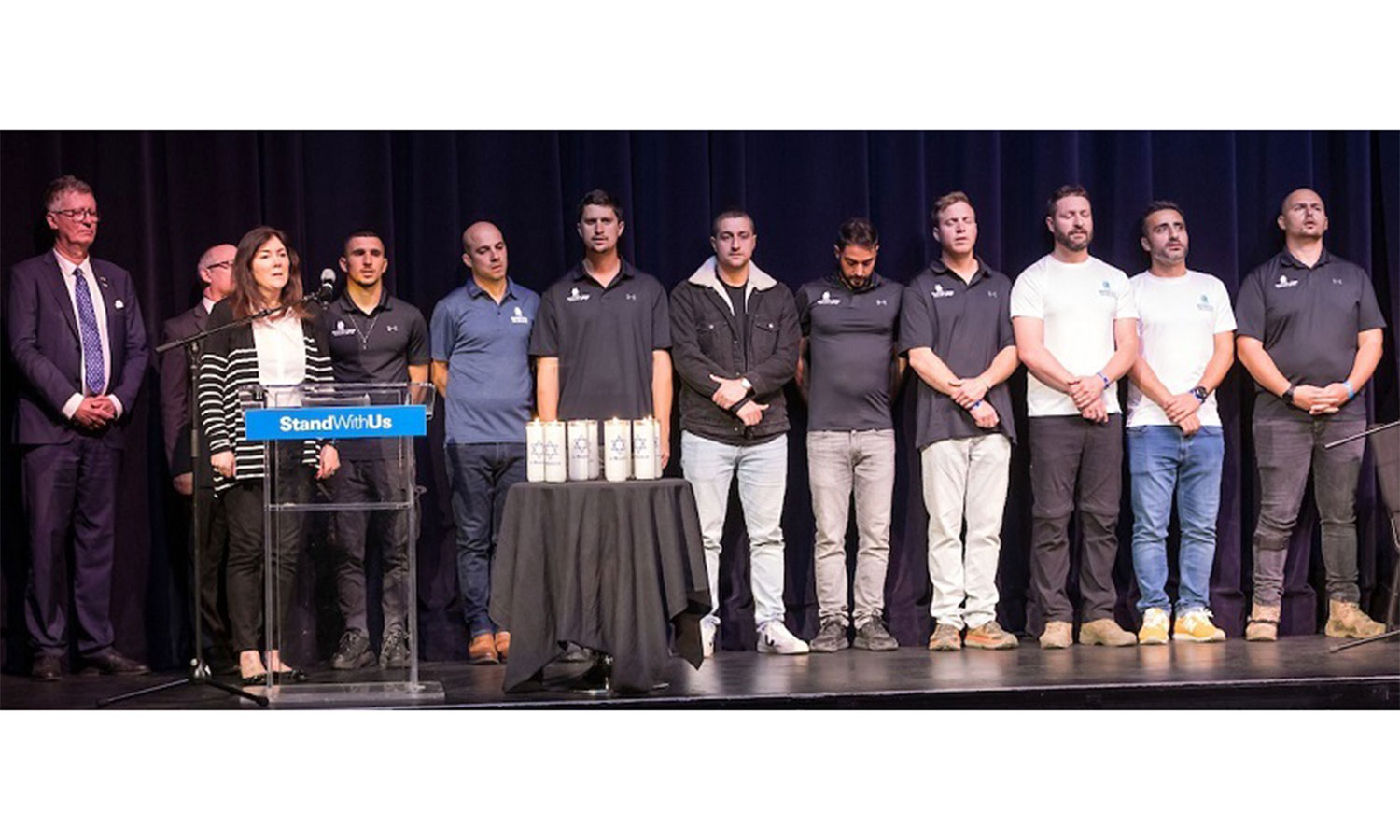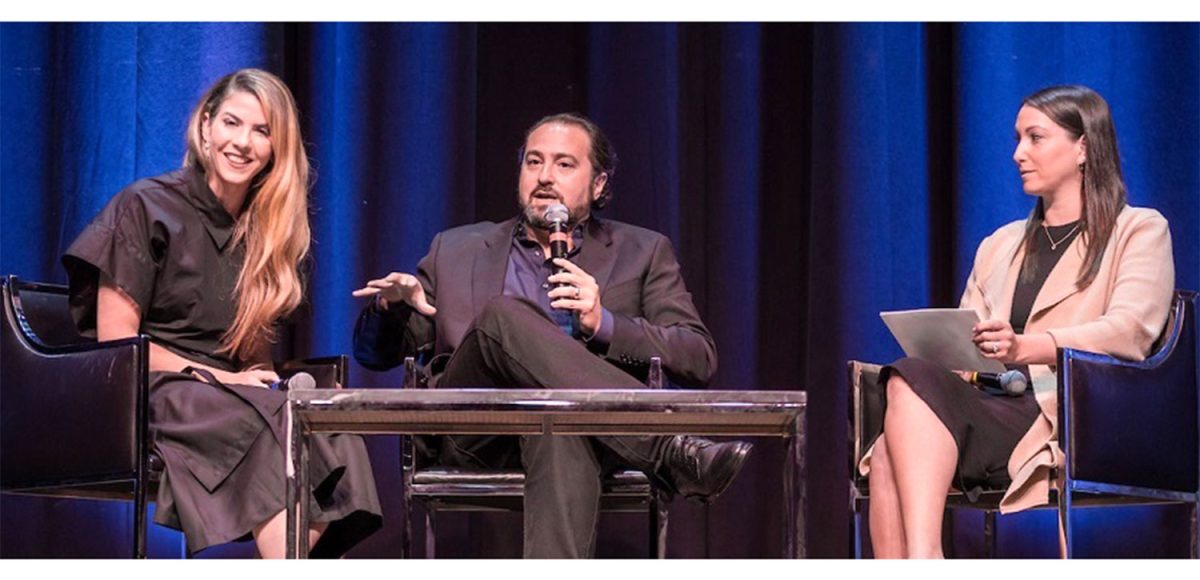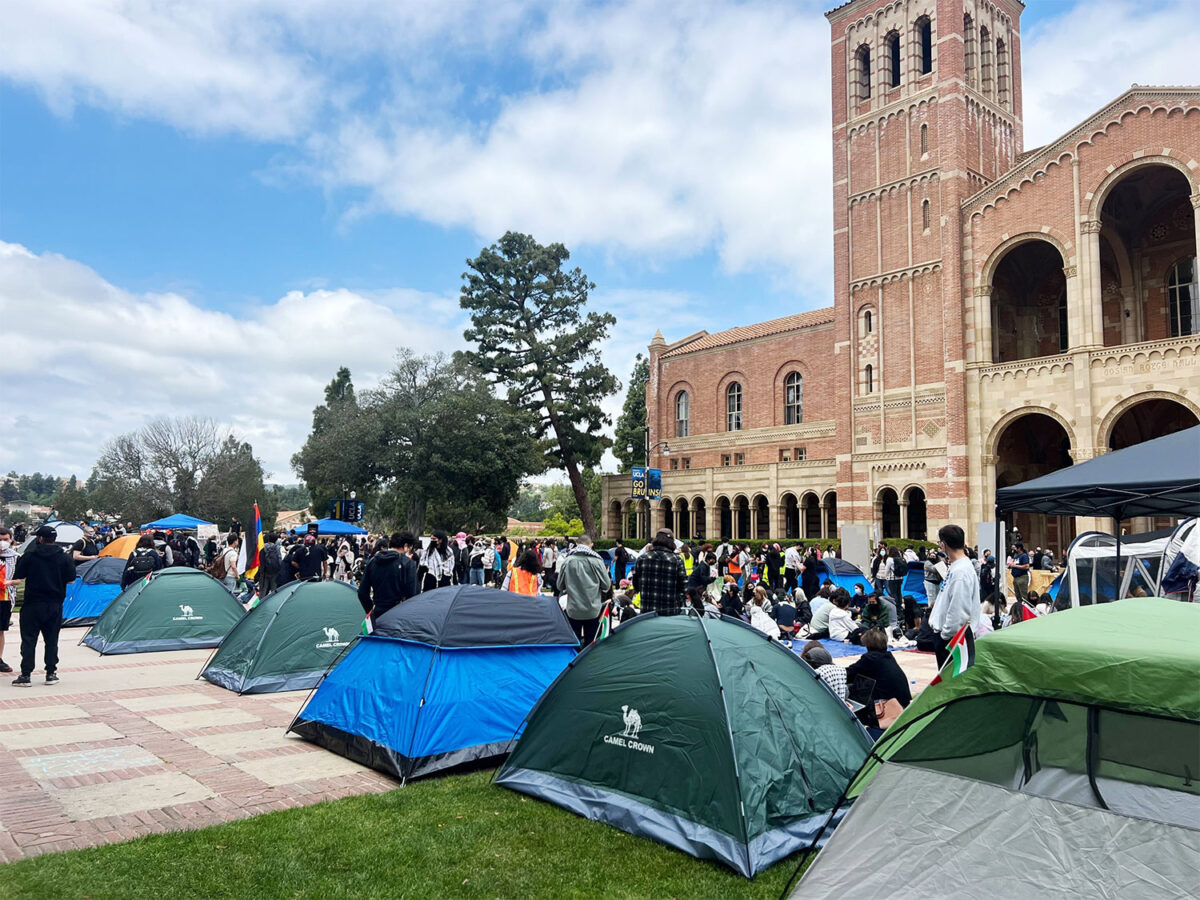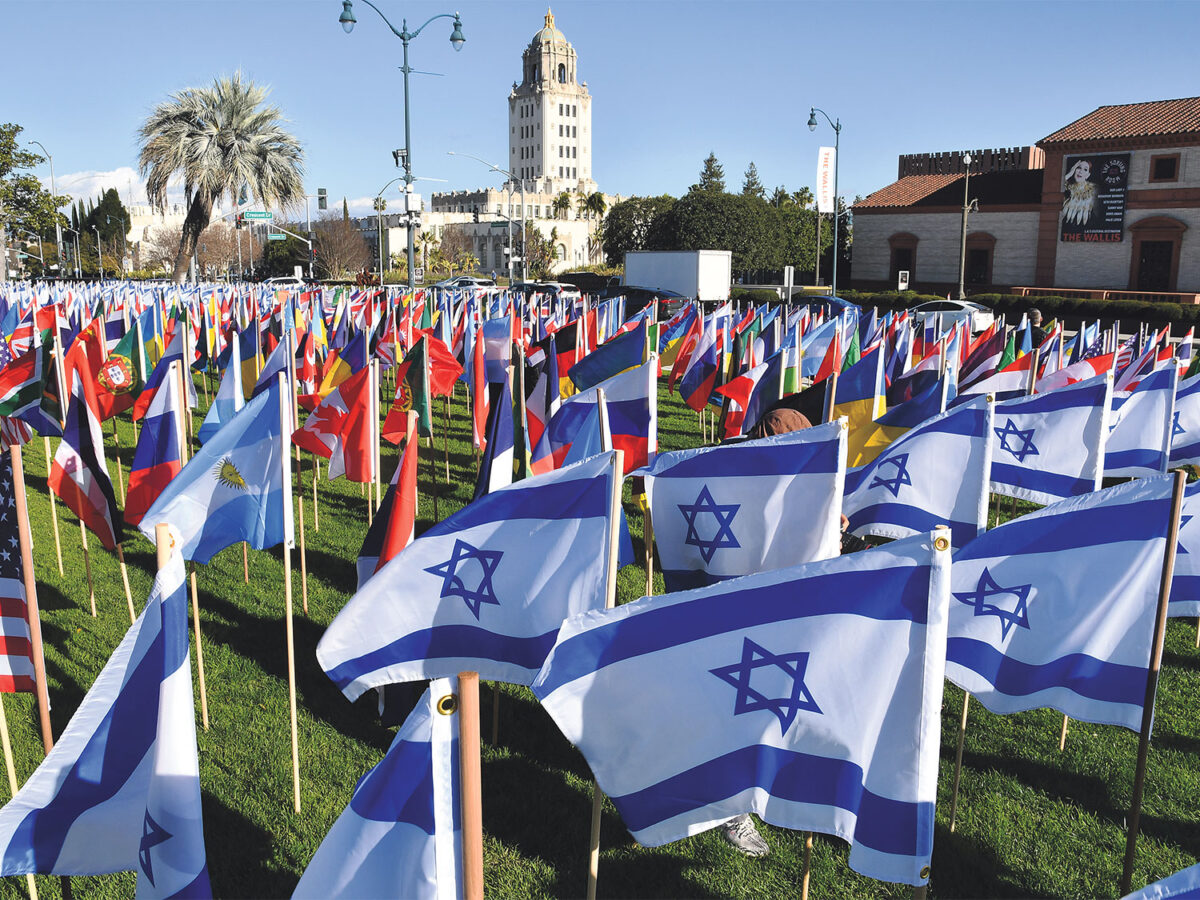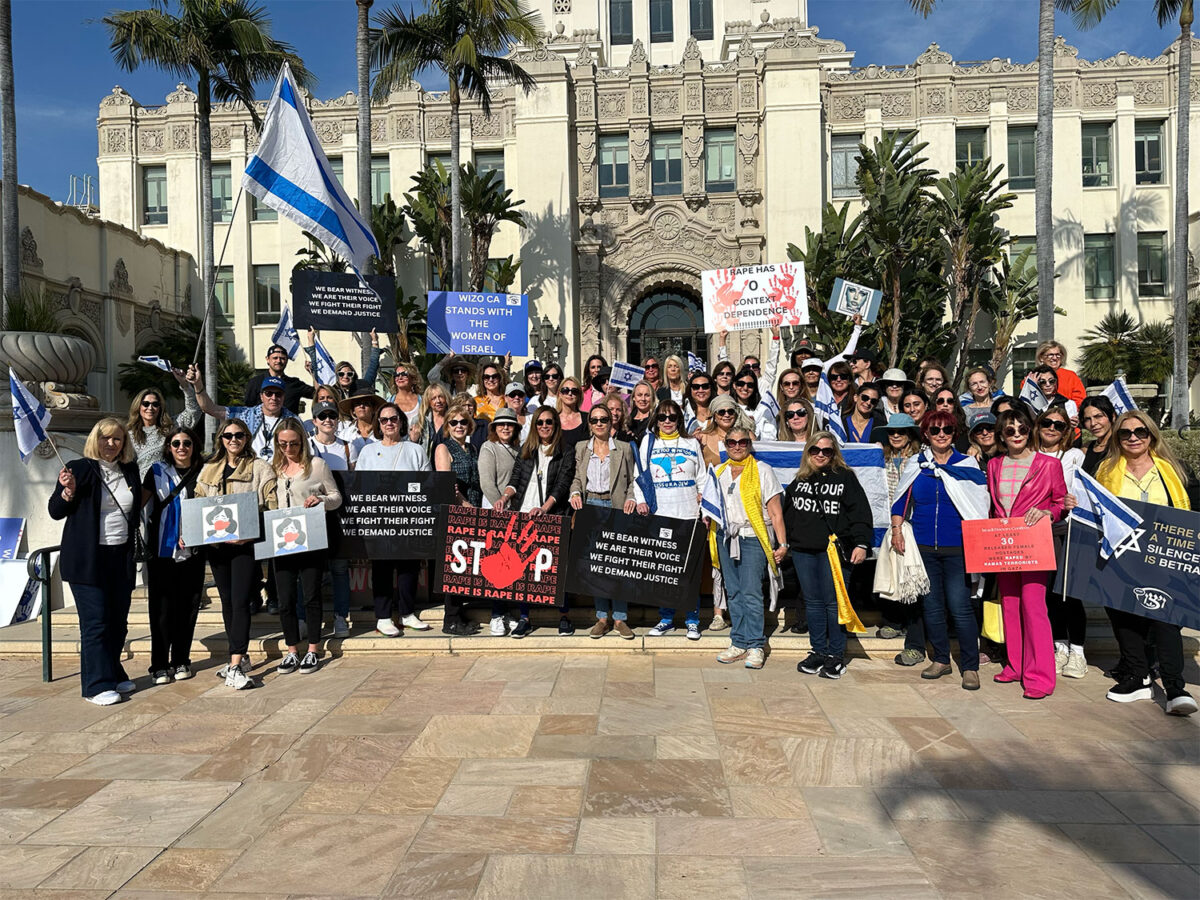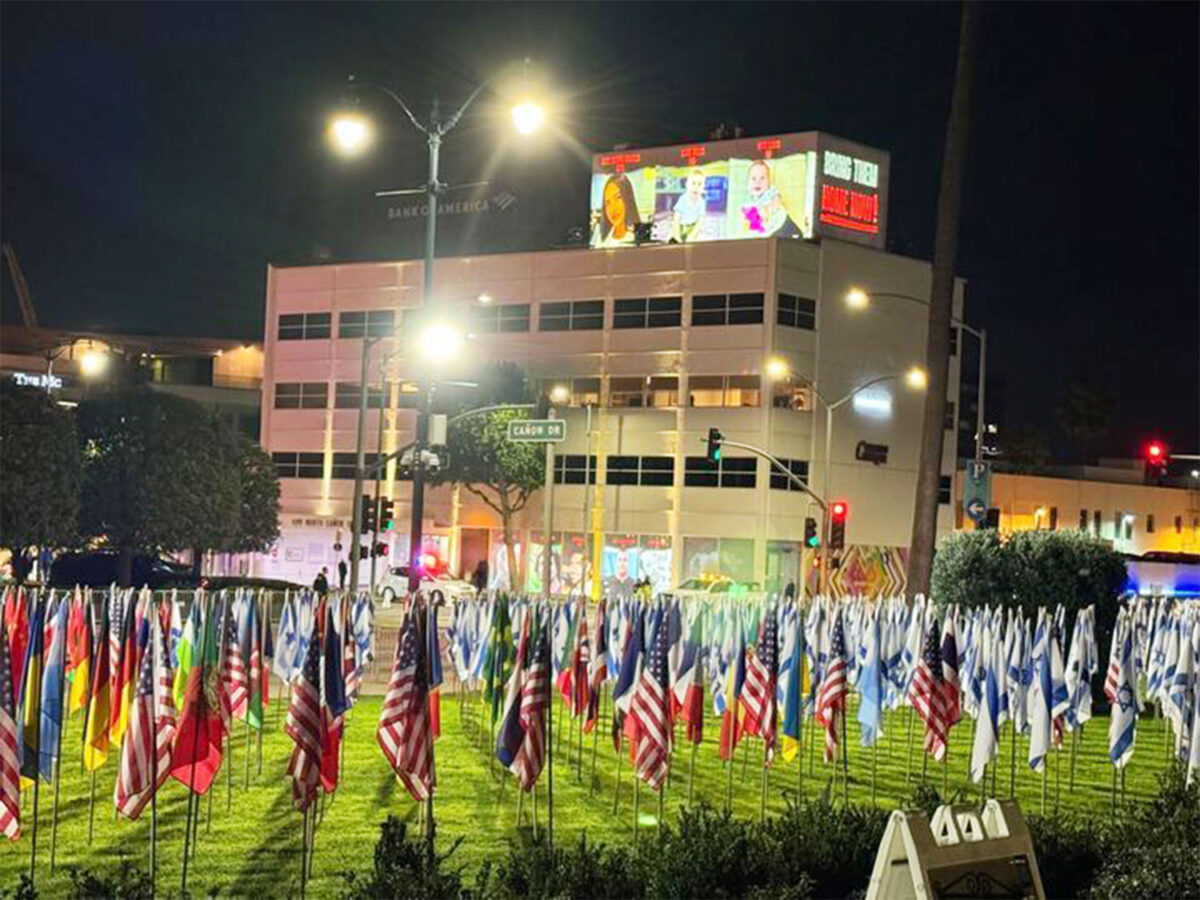At a candle-lighting ceremony for Yom HaShoah, six candles were lit for the six million murdered Jews during the Holocaust; one candle was lit for the non-Jews who perished; and one was ignited for those whom Roz Rothstein, CEO of StandWithUs, described as “victims of Palestinian terrorism.”
“Remembering the Holocaust is a priority to each one of us in this room tonight,” Rothstein said. “We are all here together to remember, to share our grief, to learn something new, to be inspired, and hopefully to recommit to sharing information about the Holocaust with others, to help fight the dangers of ignorance.”
Rothstein was speaking before nearly 400 attendees of a Yom HaShoah (Holocaust Remembrance Day) ceremony at the Saban Theater in Beverly Hills. Pro-Israel education group StandWithUs organized the April 17 program in partnership with Temple of the Arts.
“Memories fade and we cannot allow the memory of the six million to ever fade from our consciousness and memories,” Temple of the Arts Rabbi David Baron said at the event.
The candle lighting kicked off the evening, followed by a screening of the 2020 feature film, “Resistance,” starring Jesse Eisenberg in the true World War II story of Marcel Marceau, a French-Jewish mime who joins the French Resistance and smuggles Jewish orphans over the Swiss border, saving dozens of young lives.
“Marking Yom HaShoah with an educational film like ‘Resistance’ helps inspire people with the heroic acts performed by courageous people like Marcel Marceau, who fought for life and survival in the face of racism and murder,” Rothstein said.
Former Israeli soldiers from Brothers for Life, an organization dedicated to supporting wounded combat soldiers, participated in the event. Speakers included Consul General of Israel in Los Angeles Hillel Newman and Consul General of Germany in Los Angeles Stefan Schneider. Musician Jenna Parris performed “Eli, Eli,” followed by Hatikvah.
A post-screening Q&A featured “Resistance” writer-director Jonathan Jakubowicz and producer Claudine Jakubowicz. Seated onstage at the Saban with StandWithUs Los Angeles Executive Director Erinn Alcabes, the filmmaking team spoke about the current state of antisemitism in the United States, with Jonathan Jakubowicz pointing to antisemitic statements from rapper Kanye West as evidence that Jew-hatred exists not only on the margins.
Thus, he said, it’s important to support organizations like StandWithUs.
The movie, “Resistance,” argues the ultimate form of resistance against antisemitism during the Holocaust was survival. Originally released during COVID-19, the film was financed, in part, by a German film fund, which provided two million euros.
Jakubowicz, a Jewish filmmaker who grew up in Venezuela, said he never imagined Germany would support a Holocaust movie, despite Germany being actively involved in Holocaust remembrance efforts for decades.
Filming took place in Germany and Prague, with students from the Lauder Schools of Prague–the only Jewish school in the Czech Republic–portraying the orphans in the film.
Before he started writing the movie, Jakubowicz met with Marceau’s cousin, Georges Loinger, to learn more about Marceau’s story. Loinger, who died in 2018 at the age of 108, proved to be an invaluable resource.
“A lot of what you see in the film came directly from his testimony,” the writer-director said.
The film begins in the French city of Strasbourg, Marceau’s place of birth. By day, Marceau works in his father’s kosher butcher shop. By night, he performs mime in a brothel. As the Nazi conquest of Europe reaches France, Marceau’s priorities shift. He joins the French Resistance, where he develops a tight bond with a group of Jewish orphans, including one portrayed by actor Bella Ramsey of HBO’s recent drama “The Last of Us.”
Tense scenes ensue, including one on a train where Marceau is escorting a group of children as they head toward the Swiss border. Their plans are nearly thwarted when the story’s villain, a sadistic Nazi, boards, searching for Jews.
Putting his acting skills to use, Marceau pretends to be a Boy Scout leader taking his young troop on an innocent day hike in the mountains.
At the conclusion of the film, Marceau performs before a regiment of U.S. soldiers. Filming occurred at Congress Hall in Nuremberg, a grand venue that Hitler had apparently built for himself but never completed.
Shooting the film’s closing scene there, Jakubowicz said, “really felt like creative vengeance against the Nazis.”
As the final question during the Q&A, Maya Werthein, a senior at YULA Girls High School and a StandWithUs Kenneth Leventhal high school intern, asked how she and her peers could proactively resist antisemitism today.
Claudine Jakubowicz, a mother of Jewish children, said embracing your Jewish heritage, coupled with taking pride in who you are, goes a long way.
On Holocaust Remembrance Day, it was an appropriate message for anyone of any age.
